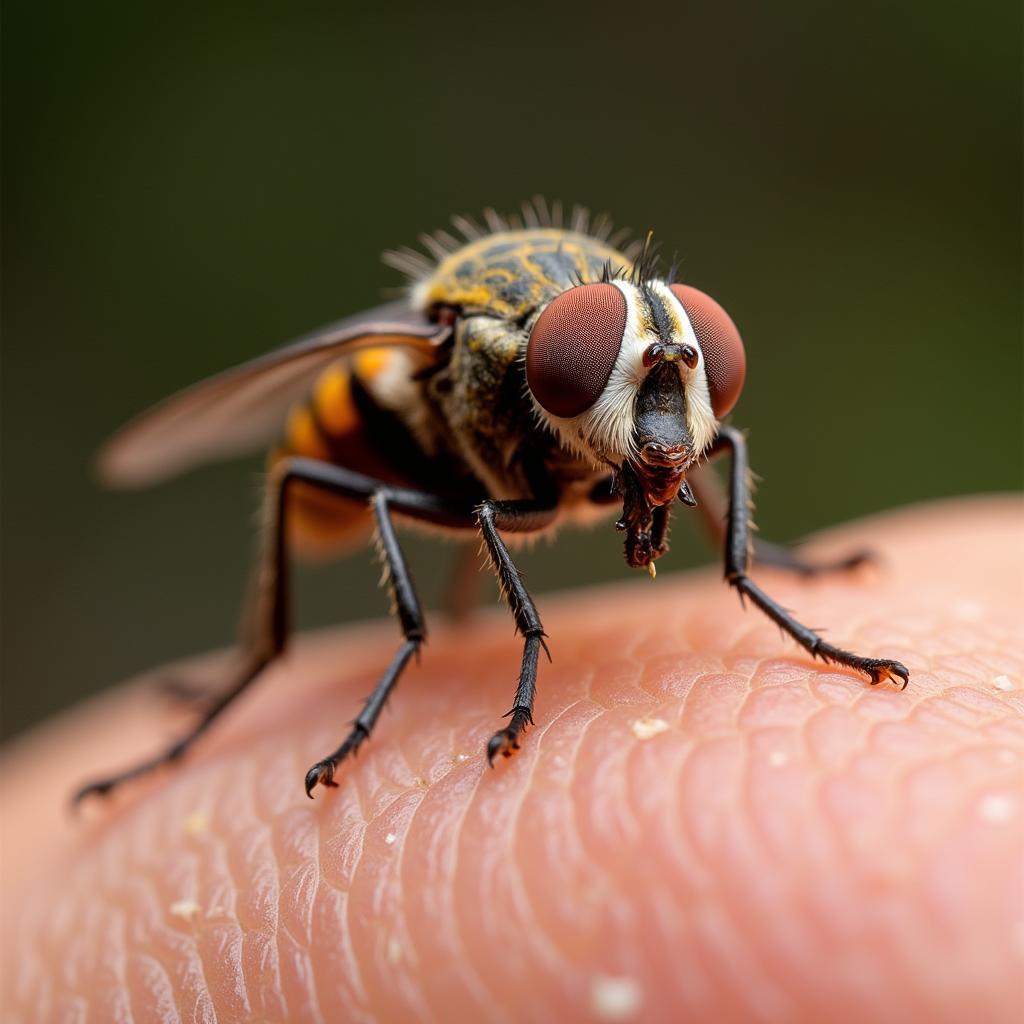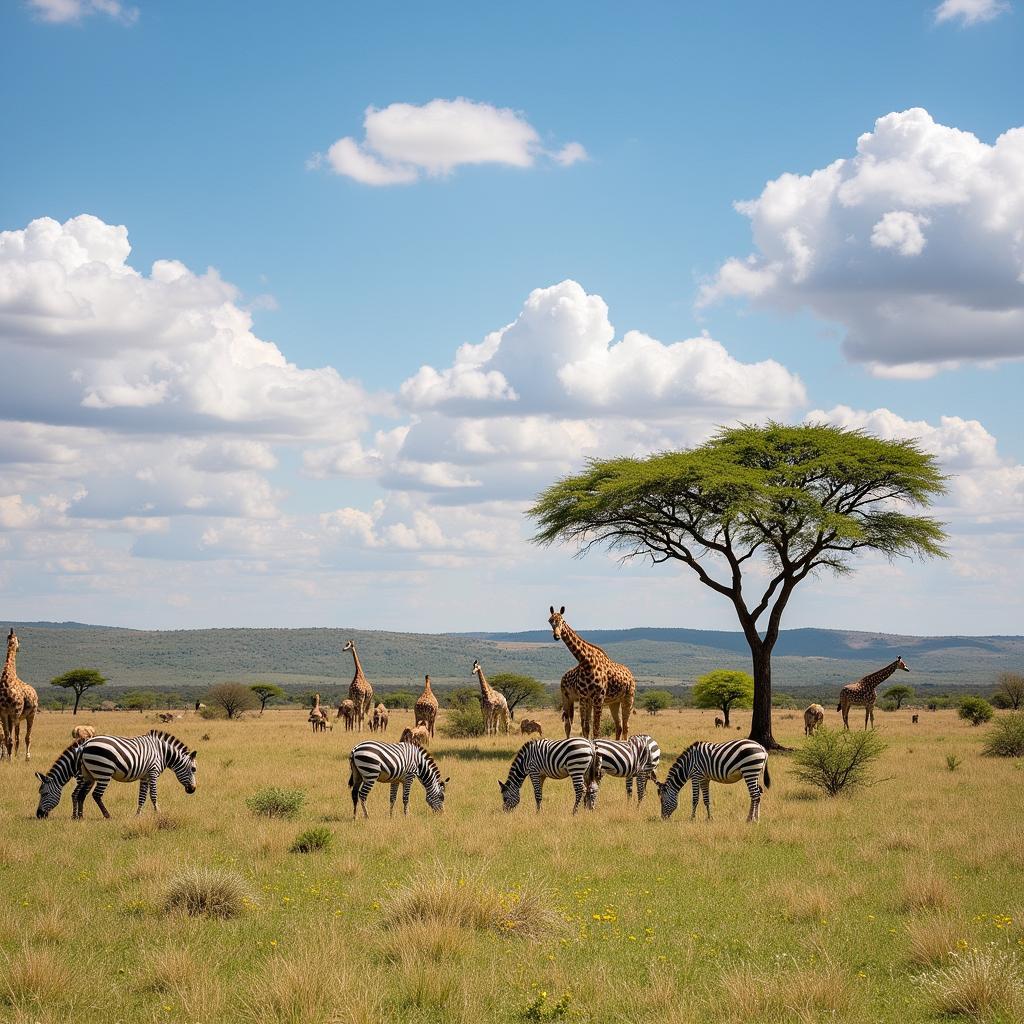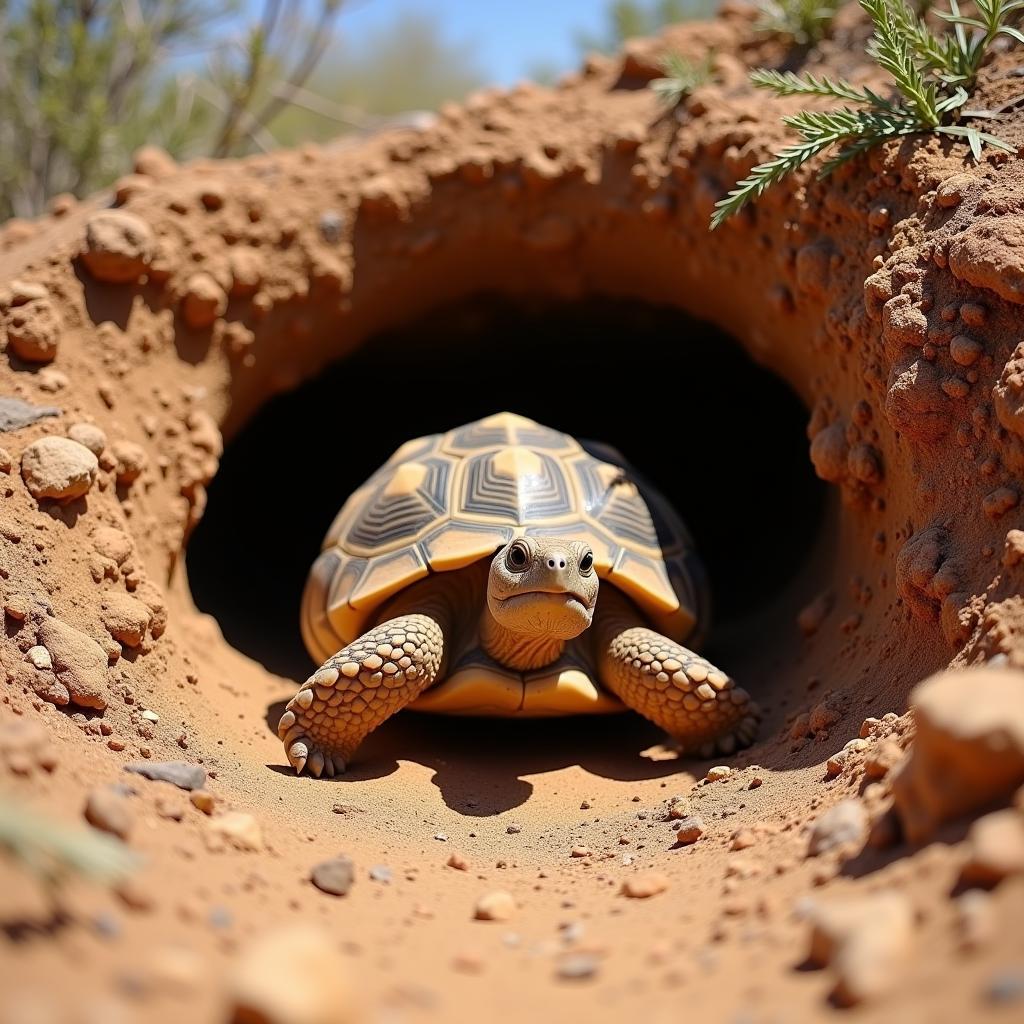African Sleeping Sickness Prevention: Safeguarding Your Health While Exploring the Continent
African sleeping sickness, also known as African trypanosomiasis, is a serious health concern for travelers venturing into certain parts of sub-Saharan Africa. This parasitic disease, transmitted through the bite of the tsetse fly, can be fatal if left untreated. However, with proper precautions and knowledge, you can significantly minimize your risk and enjoy a safe and healthy journey through the captivating landscapes of Africa.
Understanding the disease and its transmission is crucial for effective prevention. African sleeping sickness is caused by two types of parasites, both transmitted to humans through the bite of infected tsetse flies. These flies are most commonly found in rural areas, particularly near water bodies, vegetation, and wildlife reserves.
 Tsetse Fly on Human Skin
Tsetse Fly on Human Skin
Effective Prevention Strategies to Stay Safe
Protecting yourself against African sleeping sickness involves a multi-faceted approach. Implementing a combination of preventive measures is key to minimizing your risk:
1. Consult a Travel Health Specialist: Before embarking on your African adventure, schedule a consultation with a travel health professional. They can assess your itinerary, provide personalized recommendations for vaccinations, and prescribe appropriate prophylactic medications based on your travel plans.
2. Be Informed About Risk Areas: Stay updated on the latest information regarding tsetse fly distribution and risk areas within the countries you plan to visit. Utilize reliable sources such as the World Health Organization (WHO) and the Centers for Disease Control and Prevention (CDC) for accurate and up-to-date travel advisories.
3. Dress for Protection: When venturing into areas known to harbor tsetse flies, opt for light-colored clothing that covers most of your body. Tsetse flies are attracted to dark and bright colors, so neutral shades can help reduce the chances of attracting these insects.
4. Use Insect Repellents: Apply insect repellents containing DEET (diethyltoluamide) to exposed skin surfaces. DEET is an effective ingredient known to repel tsetse flies and other biting insects. Be sure to follow the instructions on the product label for safe and effective use.
5. Inspect and Choose Accommodation Wisely: Opt for accommodations that are equipped with mosquito nets and window screens. Inspect your sleeping area thoroughly for the presence of any insects before settling in. Consider using a permethrin-treated mosquito net for added protection.
6. Be Mindful of Peak Activity Times: Tsetse flies are most active during daylight hours, especially in the early morning and late afternoon. If possible, try to minimize outdoor activities during these times or take extra precautions if you must be outside.
7. Consider Prophylactic Medication: In some cases, your travel health specialist may recommend prophylactic medication if you are traveling to high-risk areas. These medications can help prevent infection by killing the parasites in your bloodstream should you get bitten by an infected tsetse fly.
Early Detection and Treatment
While prevention is crucial, recognizing the symptoms of African sleeping sickness is equally important. Early diagnosis and treatment are vital for a positive outcome.
Symptoms to Watch Out For:
- Fever
- Headache
- Joint pain
- Itching
- Swollen lymph nodes
- Confusion
- Daytime sleepiness
- Difficulty sleeping at night
Seek Immediate Medical Attention: If you experience any of these symptoms after traveling to a tsetse fly-prone area, consult a healthcare professional immediately. Early diagnosis and treatment are essential for a favorable prognosis.
Travel Smart, Stay Safe
African sleeping sickness is due to the bite of the tsetse fly. By taking necessary precautions, you can protect yourself from this serious illness while experiencing the wonders of Africa.
 African Safari Landscape with Wildlife
African Safari Landscape with Wildlife
By following these preventive measures and staying informed about risk areas, you can ensure a safe and memorable journey, embracing all that this magnificent continent has to offer.
FAQs About African Sleeping Sickness Prevention
1. Is there a vaccine for African sleeping sickness?
No, there is currently no vaccine available to prevent African sleeping sickness.
2. Can I get African sleeping sickness from a person who has it?
No, African sleeping sickness is not contagious and cannot be spread from person to person. It is only transmitted through the bite of an infected tsetse fly.
3. How soon after being bitten by a tsetse fly will I know if I have African sleeping sickness?
Symptoms of African sleeping sickness can appear anywhere from a few days to several weeks after being bitten by an infected fly.
4. Is African sleeping sickness curable?
Yes, with early diagnosis and treatment, African sleeping sickness is curable. However, if left untreated, it can be fatal.
5. What should I do if I think I’ve been bitten by a tsetse fly?
If you suspect you’ve been bitten by a tsetse fly, seek medical attention immediately, especially if you develop any symptoms of African sleeping sickness.
6. What are the best ways to prevent tsetse fly bites?
The best ways to prevent tsetse fly bites include wearing light-colored clothing, using insect repellents with DEET, staying in accommodations with mosquito nets, and being mindful of peak biting times.
7. Are there any areas in Africa where I don’t need to worry about African sleeping sickness?
While tsetse flies are present in many parts of sub-Saharan Africa, the risk of African sleeping sickness varies significantly by region and time of year. Consult a travel health specialist for the most up-to-date information.
Need More Information?
Explore these related articles for a deeper understanding:
Remember, your health is our priority. For any questions or assistance regarding African Sleeping Sickness Prevention, don’t hesitate to reach out to us. Contact our dedicated team:
Phone: +255768904061
Email: kaka.mag@gmail.com
Address: Mbarali DC Mawindi, Kangaga, Tanzania
We’re here to help you 24/7.


